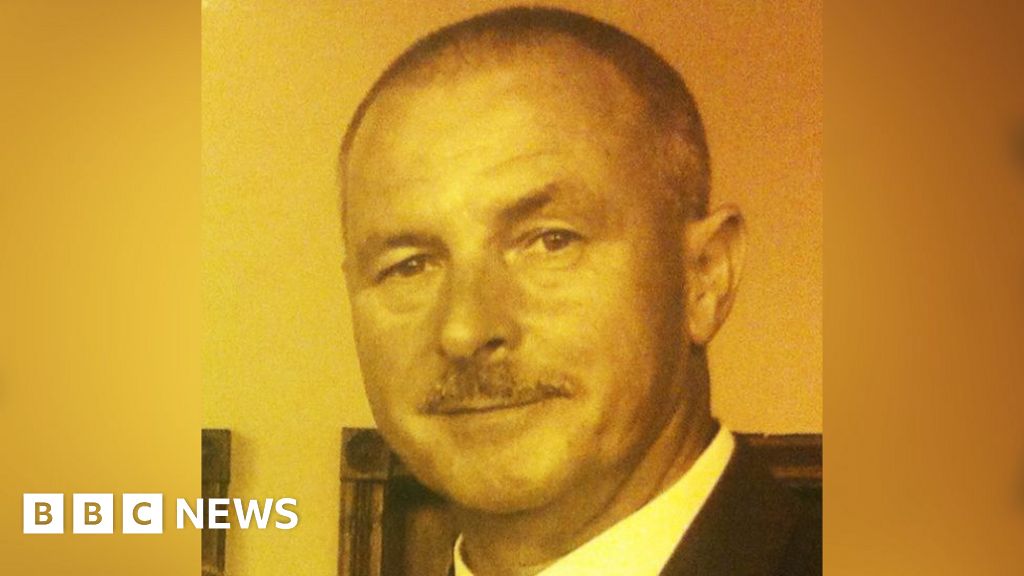A family at war and accusations of poisoning leave tycoon's body in limbo for 12 years

Kenyan Court Unable to Determine Cause of Death for British Tycoon After 12-Year Saga
A Kenyan magistrate has closed a decade-long inquest into the death of British property tycoon Harry Roy Veevers, whose body has remained in a mortuary for 11 years. The ruling, delivered this week, failed to determine the cause of his death, leaving a family fractured by accusations of poisoning and disputes over inheritance with no clear resolution.
The case, which began after Veevers' death on Valentine's Day in 2013, has been marked by bitter legal battles between his sons from his first marriage and his second wife and their daughters. The magistrate, David Odhiambo, cited the advanced decomposition of the body as the primary reason for the inconclusive finding, ordering that the remains be released to the family for reburial.
A Family Divided: Accusations and Legal Battles
The Veevers family feud erupted immediately following his death in Mombasa, where he had lived for many years and amassed a substantial property portfolio. His sons, Richard and Philip, raised suspicions about the circumstances surrounding their father's death, alleging that he had been poisoned by his second wife, Azra Parvin Din, and her daughters to secure his assets. These claims were vehemently denied.
Adding to the complexity, there was no apparent will, further fueling the disputes over Veevers' estate. The sons' suspicions led them to apply for the exhumation of their father's body and a formal investigation into the cause of death. A court order was granted in April 2013, but the exhumation was delayed for over nine months, significantly impacting the body's condition.
Delayed Exhumation and Conflicting Forensic Reports
The delay in exhuming Veevers' body proved critical. By the time it was finally carried out in January 2014, the extent of decomposition made it extremely difficult for forensic pathologists to determine the cause of death. Conflicting forensic reports further complicated the matter. One pathologist reported finding traces of a highly toxic substance, cyhalothrin, but the validity of this finding was questioned due to issues with sample handling and transportation.
"The experts showed to us that there could be different interpretations about a subject [such] that the lay person is left wondering what to believe," Magistrate Odhiambo stated in his ruling, highlighting the challenges posed by the conflicting expert opinions.
Legal Uncertainty and a Body in Limbo
Despite the magistrate's ruling, the future of Veevers' remains remains uncertain. Lawyers representing both sides of the family have indicated they are considering their next steps, suggesting further legal wrangling is likely. The sons have consistently argued that their father, a British citizen, should be buried in the UK, while his second wife and her daughters want him reburied in Kenya.
Francis Kinyua Kamundi, representing Mr Veevers' sons, questioned how the court could release the remains to the family when the two sides have been in conflict for so long. This division underscores the deep-seated animosity that has plagued the case from the beginning.
Historical Context: Inheritance Disputes in Kenya
The Veevers case highlights the complexities of inheritance disputes in Kenya, particularly when families are divided and assets are substantial. According to Dr. Joy Kiiru, an expert in family law at the University of Nairobi, "Inheritance disputes are common in Kenya, often exacerbated by the lack of clear wills and cultural differences in inheritance practices. The absence of a will can create a vacuum, leading to prolonged legal battles and family rifts, as seen in the Veevers case."
Kenya's legal system is often burdened by such disputes, leading to delays and frustrations for all parties involved. The Veevers case, spanning over a decade and involving numerous magistrates and judges, exemplifies the challenges in resolving complex family conflicts within the Kenyan legal framework.
Expert Analysis: The Impact of Delayed Justice
Legal analyst and commentator, Barrister Emmanuel Wafula, notes that the lengthy delays in the Veevers case significantly hampered the pursuit of justice. "The delay in exhuming the body and the subsequent decomposition made it virtually impossible to ascertain the cause of death," he explained. "This underscores the importance of timely investigations and preserving evidence in such sensitive cases. Justice delayed is often justice denied, especially when critical evidence is lost or degraded over time."
Wafula also pointed to the lack of clear legal provisions guiding burial disputes in Kenya as a contributing factor to the prolonged saga. He argued that the absence of a will and the conflicting wishes of the family members created a legal impasse that the court struggled to overcome.
An Unsatisfactory End and an Uncertain Future
The Veevers case serves as a stark reminder of the devastating impact that family disputes can have, particularly when compounded by legal complexities and delays. While the magistrate has closed the inquest, the fate of Harry Roy Veevers' remains and the unresolved inheritance issues continue to hang in the balance, leaving his family trapped in a cycle of conflict and uncertainty. His long wait for "eternal peace" appears far from over.
Originally sourced from: BBC News Africa
